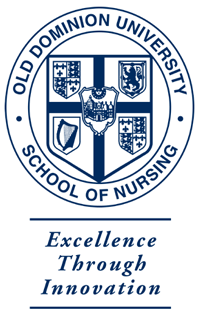
Family Presence in Critical Care - N454
Critical Care Elective Discussion Board Presentation
NURS 454 – Critical Care Nursing
Purpose of the Assignment
The purpose of this assignment is to examine current trends in critical care, reflect on whether or not you saw them in practice, and determine ways they could be implemented or updated as needed.
Student Approach to Assignment
I completed this assignment with the intent to grow in my understanding of the positives and negatives associated with visitors at the bedside. Ultimately, my clinical experience and this assignment taught me that family presence can yield numerous positive effects; however, with recent circumstances involving the Coronavirus, policies must be reevaluated to assure that patients and staff are kept as healthy and safe as possible.
Reason for Inclusion of this Assignment in the Portfolio
This assignment was included in the portfolio because it serves as an example to my understanding regarding family-centered patient care. I also chose to include this assignment because it includes up to date research concerning the importance of family presence in critical and non-critical circumstances before the COVID-19 outbreak.
Critical Thinking
-
Evaluates nursing care outcomes through the acquisition of data and the questioning of inconsistencies
-
After examining the various clinical sites experienced by my clinical partners and I, we came to the understanding that each facility operates under different guidelines, and oftentimes each unit can fluctuate regarding the visitor policy. Ultimately, after researching applicable sources and observing the clinical atmospheres we came to the conclusion that family and visitors should be permitted to stay with the patient with a few exceptions including recently returning from surgery and during bedside medical procedures besides resuscitation efforts. The research indicated that a very small portion of hospitals permit visitor presence, when, in actuality, this helps the patient’s family members feel at peace with the circumstance and situation.
-
Teaching
-
Uses information technologies and other appropriate methods to communicate health promotion, risk reduction, and disease prevention across the life span
-
This presentation was created through utilization of electronic databases to compile research regarding when family and visitor presence is recommended. Additionally, this information was communicated via discussion board to facilitate discussion amongst faculty and peers which will hopefully encourage viewers to share evidence-based practice with their new places of employment to better health outcomes and lessen the likelihood of physical, emotional, and psychological trauma for the patient and family members throughout their lives.
-
Culture
-
Maintains an awareness of global environmental factors that may influence the delivery of health care services
-
Shortly after the completion of this exercise, numerous local facilities heavily restricted their visitation policy due to the Coronavirus outbreak. Therefore, healthcare policies must be fluid to combat circumstances that arise that have the potential to endanger patients, visitors, or hospital staff. Additionally, as the virus has spread the access to personal protective equipment has dwindled which limits visitors.
-
Honor Code
“I pledge to support the Honor System of Old Dominion University. I will refrain from any form of academic dishonesty or deception, such as cheating or plagiarism. I am aware that as a member of the academic community, it is my responsibility to turn in all suspected violators of the Honor Code. I will report to a hearing if summoned.”
-
Brandon Sparrer
-
April 6, 2020
-
Signature: Brandon Sparrer
